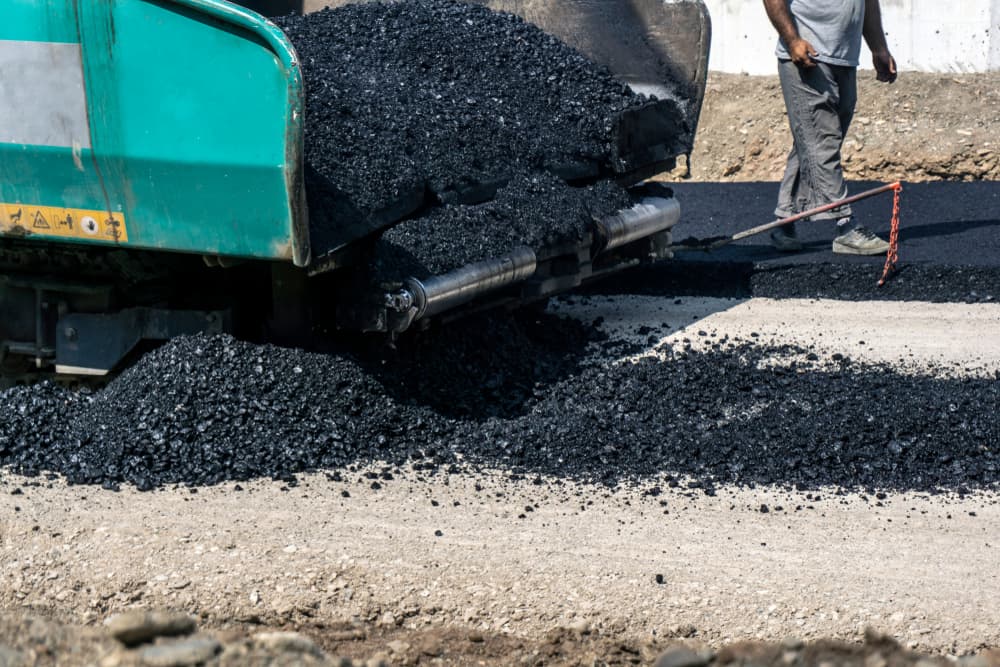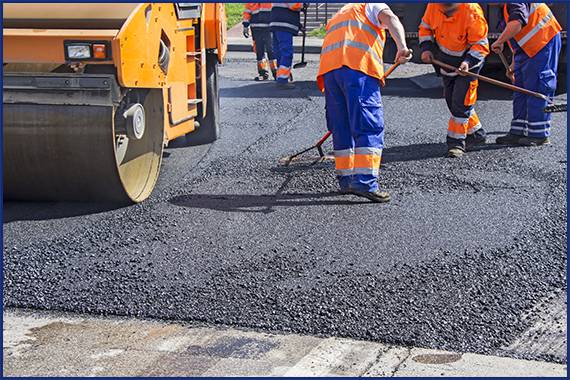Affordable Paving Services for Your Driveway
Affordable Paving Services for Your Driveway
Blog Article
Discovering the Various Kinds Of Asphalt Paving and Their Advantages
The landscape of asphalt paving includes a selection of types, each crafted to resolve particular demands and ecological factors to consider. From the robust attributes of Warm Mix Asphalt to the green qualities of Recycled Asphalt Pavement, comprehending these options can considerably influence project outcomes. In addition, technologies such as Cozy Mix Asphalt and Porous Asphalt present added layers of performance and sustainability. As we discover these various paving options, the nuanced advantages they provide may amaze you and potentially change your method to future paving jobs.
Hot Mix Asphalt
When thinking about one of the most effective leading services, hot mix asphalt (HMA) stands apart as a premier selection for lots of applications (paving). HMA is a versatile paving product understood for its sturdiness, flexibility, and overall efficiency. It is produced by heating asphalt binder and integrating it with aggregates at heats, making sure an uniform combination that can stand up to various ecological problems
One of the main advantages of HMA is its ability to supply a smooth, skid-resistant surface, enhancing safety for automobiles and pedestrians alike. In addition, HMA displays superb resistance to contortion, making it ideal for high-traffic locations such as highways and parking area. Its flexibility to various environments further adds to its extensive usage.
The installment procedure of HMA is relatively quick, enabling effective job completion with very little interruption to traffic. Additionally, it can be reused, reducing waste and promoting sustainability within the construction industry. On the whole, warm mix asphalt remains a top choice for paving specialists as a result of its robust efficiency attributes and lasting cost-effectiveness, making it a reputable remedy for different facilities requirements
Warm Mix Asphalt
Cozy mix asphalt (WMA) supplies an ingenious alternative to hot mix asphalt, giving similar benefits while requiring reduced production temperatures. Normally created at temperature levels between 190 ° F and 250 ° F, WMA innovation reduces power intake and greenhouse gas emissions during production, making it a more ecologically pleasant alternative.
This versatility can lead to improved compaction and total durability of the asphalt surface area. Furthermore, WMA can be utilized in various applications, ranging from highways to property driveways, without endangering efficiency.

The incorporation of additives or changed binders in WMA adds to its enhanced buildings, guaranteeing that it fulfills or exceeds performance requirements. Furthermore, WMA's minimized thermal effect throughout manufacturing can lower the probability of damages to the surrounding atmosphere, making it an enticing option for lasting paving methods.
Cold Mix Asphalt
Cold mix asphalt is a flexible leading service typically made use of for short-lived repair work and low-traffic areas. This kind of asphalt is generated at ambient temperatures, making it a hassle-free choice for fast repairs and jobs where traditional warm mix asphalt may not be practical. The mix usually is composed of asphalt binder, aggregate, and additives, allowing it to continue to be convenient for an extensive period.
Among the key benefits of cool mix asphalt is its convenience of application. It can be mounted without specific devices, making it easily accessible for smaller specialists and DIY fanatics. In addition, cold mix can be used in numerous weather, which is specifically beneficial for immediate repair work needs.

It might not give the very same lasting durability as warm mix asphalt, its quick application and versatility make it an excellent choice for short-lived services and low-traffic applications. In general, cool mix asphalt stays a practical alternative in the asphalt paving landscape.
(find out more)
Permeable Asphalt
Permeable asphalt is an innovative paving solution designed to enhance stormwater management and lower surface area overflow. This kind of asphalt features a distinct structure that includes interconnected spaces, enabling water to permeate through the surface area and right into the underlying layers. By assisting in natural water drainage, permeable asphalt assists reduce the risk of flooding and diminishes the worry on metropolitan stormwater systems.
Among the primary advantages of permeable asphalt is its ability to improve water top quality. As stormwater infiltrate the pavement, toxins and sediments are entraped, minimizing the number of impurities that enter neighborhood waterways. This adds to healthier ecological communities and supports compliance with ecological policies.
In addition, porous asphalt can improve the long life of the pavement itself. By decreasing water buildup on the surface, it lessens the possibility for freeze-thaw cycles that can lead to cracking and degeneration. The reduced demand for conventional stormwater management infrastructure can result in expense financial savings for districts and developers.
Recycled Asphalt Pavement
(start exploring)Recycled asphalt pavement (RAP) represents a sustainable approach to road construction and upkeep that profits both the environment and the economic situation. By recycling existing asphalt materials, RAP minimizes the demand for new raw materials, which in turn conserves natural deposits and reduces environmental influence. This technique lowers power consumption and greenhouse gas emissions connected with the manufacturing of next page new asphalt.
The unification of RAP into new pavement mixtures can likewise bring about significant price savings. Professionals can leverage recycled products to decrease overall job expenses, making it an economically practical choice for municipalities and private programmers alike. In addition, RAP uses similar performance attributes to virgin asphalt, making certain durability and long life in roadway surfaces.
RAP's convenience enables it to be made use of in various applications, including highways, auto parking lots, and household driveways. By enhancing the architectural integrity of existing sidewalks, RAP adds to improved security and smoothness of roadways.
Conclusion
Hot Mix Asphalt stands out in longevity and fast installation for high-traffic areas, while Warm Mix Asphalt enhances sustainability via reduced energy usage. Cold Mix Asphalt offers as an economical choice for urgent repairs, Porous Asphalt successfully manages stormwater, and Recycled Asphalt Sidewalk promotes ecological responsibility.
Report this page